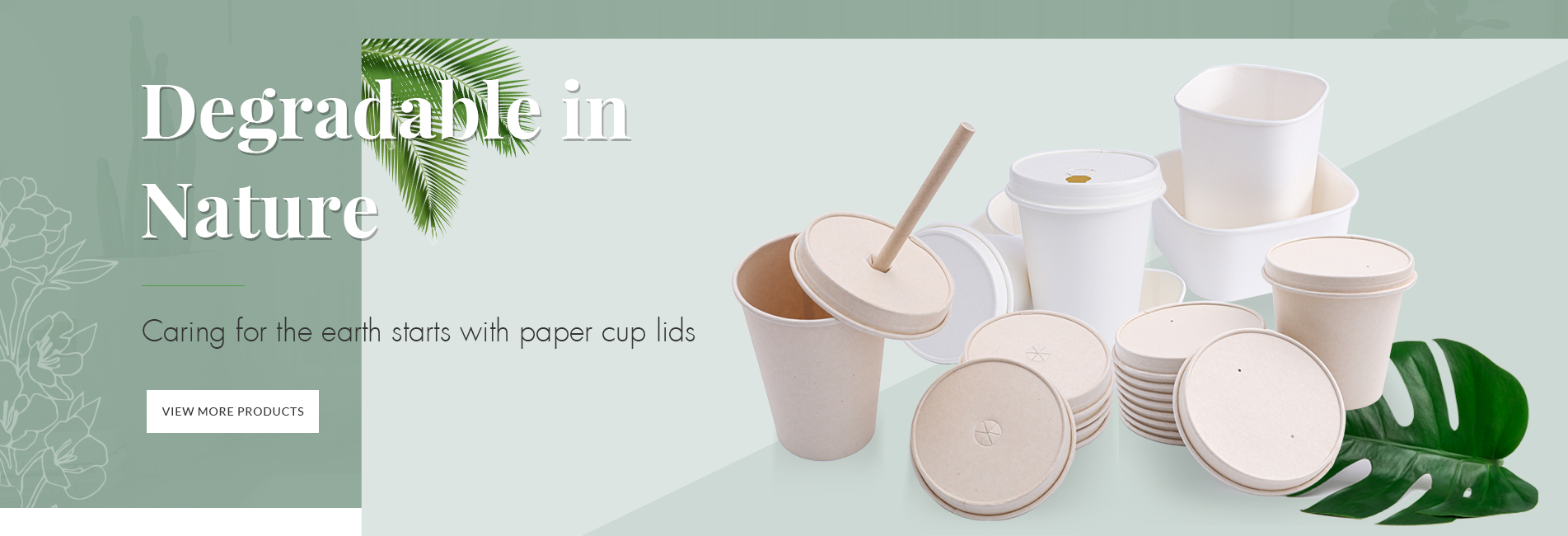Catégories
Dernier blog
The explanation on biodegradable And Compostable
Dec 01 , 2020terminology in the degradation plastics industry
composting plastics (compostable plastic)
a plastic that can be degraded and disintegrated under composting conditions due to the biological reaction process and eventually completely decomposed into mineralized inorganic salts of carbon dioxide (CO2), water (H2O) and the elements contained therein, as well as new biomass, and the resulting compost must meet relevant standards for heavy metal content, toxicity tests, residual debris, etc.
Glaman durable paper lids, food grade rectangular kraft paper bowls and large ecofriendly paper cups are all compostable ,they can be degraded and disintegrated under composting conditions .

biodegradable plastics (biodegradable plastic)
under natural conditions such as soil and / or sandy soil, and / or specific conditions such as composting or anaerobic digestion or aqueous culture medium, degradation is caused by microbial action in nature and eventually completely degrades into carbon dioxide (CO2) or / and methane (CH4), water (H2O) and mineralized inorganic salts containing elements thereof, as well as plastics of new biomass.
See: degradable plastics.
like our products,Glaman is professional in manufacturing ecofriendly and food grade disposable paper lids,paper cups and paper bowls that are made of ecofriendly bagasse paperboard with PLA coated,which is biodegradableunder natural conditions. click it here: ( https://www.glamanpaperlid.com/750ml-rectangular-kraft-food-container-paper-bowl_p86.html )
degradation (degradation)
the process of significant structural changes, loss of properties (e.g., integrity, relative molecular mass, structure or mechanical strength) after a certain period of time and including one or more steps, affected by environmental conditions.
biological decomposition (biodegradation)
degradation caused by biological activities, especially the action of enzymes, causes significant changes in the chemical structure of materials.
the gradual digestion of materials by microorganisms or certain organisms as nutrient sources leads to mass loss, properties such as reduced physical properties, and ultimately to the decomposition of materials into compounds or simple substances with relatively simple components, such as carbon dioxide (CO2) or /and methane (CH4), mineralized inorganic salts of water (H2O) and the elements contained therein, and new biomass.
final aerobic biological decomposition (Ultimate aerobic biodegradation)
under aerobic conditions, materials are eventually decomposed by microorganisms into mineralized inorganic salts and new biomass of carbon dioxide (CO2), water (H2O) and the elements they contain.
final anaerobic biodegradation (Ultimate anaerobic biodegradation)
under anoxic conditions, the material is finally decomposed by microorganisms into mineralized inorganic salts and new biomass of carbon dioxide (CO2), methane (CH4), water (H2O) and the elements contained therein.
biological capacity -- biological capacity (biological treatability)
potential for bio-digestion under composting or anaerobic conditions of material aerobic conditions.
deterioration -- deterioration (deterioration)
permanent changes in the physical properties of plastics due to damage to certain structures.
disintegration (disintegration)
The physical fracture of the material becomes extremely small fragments.
composting (compost)
organic soil regulators obtained from the biological decomposition of mixtures. The mixture is mainly composed of plant residues and sometimes contains some organic materials and certain inorganic substances.
composting (composting)
a aerobic treatment for composting.
composting capacity -- composting capacity (compostability)
the ability of materials to be biodegradable during composting.
If the composting capacity is claimed, it must be stated that the material is biodegradable and disintegrated in the composting system (as shown in the standard test method) and is completely biodegradable in the final use of the compost. composts must meet relevant quality standards such as low heavy metal content, no biological toxicity, no clearly distinguishable residues.
degradation plastics (degradable plastic)
under specified environmental conditions, after a period of time and including one or more steps, significant changes in the chemical structure of the material result in the loss of certain properties (such as integrity, molecular mass, structural or mechanical strength) and / or broken plastics. standard test methods reflecting performance changes should be used and their categories determined by degradation mode and life cycle.
see biodegradable plastics; compostable plastics; thermal oxygen reduction
Thermoxic degradable plastics (heat-and/or oxide-degradable plastic)
plastics degraded by heat and/ or oxidation.
See: degradable plastics.
photodegradation plastics (photo-degradable plastic sheet)
plastic that is degraded by natural sunlight.
See: degradable plastics.